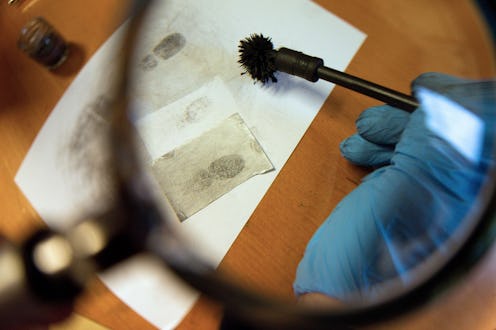News
4 Times Internet Detectives Got It Badly Wrong
There are a lot of benefits to living in such a modern, high-tech age, and everybody having access to almost any information you could possibly want via the Internet is probably the biggest one. It allows everyday people to stay informed and engaged with stories and issues well beyond the boundaries of their cities or towns, and even lets well-intentioned people help strangers find answers to vexing questions. But there can be a downside to this sort of thing, too. Amateur Internet detectives can get things wrong, and that sometimes ends up being a big problem.
It's an understandable human impulse. You're immersed in a story, and you see some angle on it that that you want to highlight. Maybe you think you've come across some valuable, important information that could solve some kind of high-profile mystery, or that would provide an urgent social good. But sometimes, good intentions be damned, things get a bit out of hand. A little unnecessary speculation, mixed with a little rush-to-judgement and some viral appeal, can result in an innocent person being wronged.
Here are four examples of online sleuths getting the wrong person. Because it's important to remember not to get too far ahead of yourself.
1. The Sandy Hook School Shooting (2012)
Back in December 14, 2012, one of the most horrifying mass shootings in American history took place in Newtown, Connecticut. A gunman descended on Sandy Hook Elementary School, killing six faculty members and 20 children. And thanks to early reports (which can often be unreliable in the immediate aftermath of this kind of violent tragedy) that an ID with the name "Ryan Lanza" was discovered at the scene, 24-year-old New Jersey man Ryan Lanza became the target of furious condemnations online. You can still see some of it, in fact — here's a Facebook group that still blames him by name for the attack.
Of course, the shooting wasn't carried out by Ryan Lanza, but by his younger brother Adam. However unthinkably horrifying it must be to learn your brother is a mass killer who took his own life, imagine how it must also feel for everybody you know to be told that you were the one who did it.
2. The Death Of Trayvon Martin (2012)
After Florida teen Trayvon Martin's death at the hands of George Zimmerman, there was a searing amount of hostility and despair on the part of many activists and anti-police violence figures, very visibly so on social media. But one very high-profile celebrity made a bad mistake amid all the tumult, and ended up putting an innocent family through some severe distress. Filmmaker Spike Lee mistakenly tweeted out a home address which he believed to belong to Zimmerman, but which was actually the home of a random married couple in their 70s.
Regardless of the state of anger directed at Zimmerman at that time, even if the address had been correct, it shouldn't have been released. But the mistake makes it even worse, in a sense, and it landed Lee in court — although the family's lawsuit would ultimately be dismissed in 2014.
3. The Boston Bombing (2013)
After the horrifying bombing at the 2013 Boston Marathon, which killed three spectators and injured hundreds, the entire national media's attention was transfixed on the hunt for the perpetrators. And some denizens of the so-called "front page of the internet" were no exception — an ambitious effort was undertaken on Reddit to crack the case, but it ended up going in an altogether wrong direction.
Basically, many people on the "Find Boston Bombers" subreddit became convinced that the culprit was Sunil Tripathi, a Brown University student who'd gone missing a month earlier. The rumor ended up taking hold throughout social media, and ultimately, the subreddit's moderator apologized to Tripathi's family for causing them a huge amount of distress. Tripathi, sadly, was found over a month after he vanished, dead in an apparent suicide.
4. The Death Of Michael Brown (2014)
The rightfully urgent, incensed atmosphere following the shooting death of Ferguson teen Michael Brown by Officer Darren Wilson ended up being fertile ground for another one of these needless snafus. This time, it was the hacktivist collective Anonymous who got in on the act, attempting to determine the identity of the cop who shot Brown. This was before any of us had heard the name "Darren Wilson."
And it went very, very wrong. A member going by the handle "TheAnonMessage" ended up publicly accusing Bryan Willman, a police dispatcher in the city of of St. Ann — a St. Louis suburb, but notably not Ferguson. According to The New Yorker, Willman had in fact never even been to Ferguson, and when he was contacted by the St. Louis Police Department Intelligence Unit and told he'd been named, he was shocked. When he got home and checked his social media accounts, he found hundreds of death threats. He ultimately stayed cooped up inside his home for days, until after the shooter's real identity was revealed. That's a tall price to pay for someone else's overzealous mistake.
